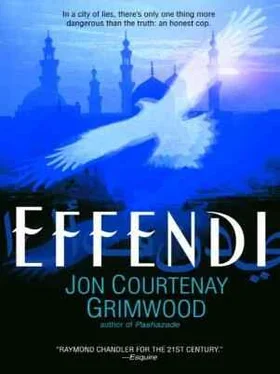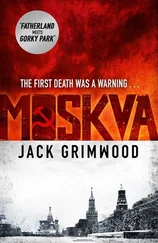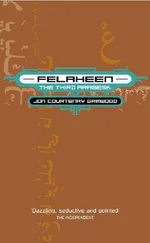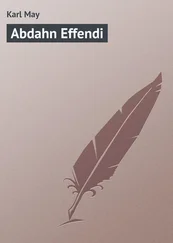Raf didn’t, although something in Khartoum’s voice warned him he should have. “Three nights she’s slept there. Her and that cat. She thought you were dying . . . Ya Pasha thinks you’re being clever. Hani thinks you’re going to die. The noisy American thinks you’re refusing to see her out of spite. But God knows the truth. You been hiding. Most of your life has been hiding.”
“And you are who?” asked Raf.
“Who’s anyone?” said Khartoum. “So much dust. There are people in this city who would give all of what they own to see you dead . . .”
“Me?”
“Iskandryia’s governor,” said Khartoum. “That’s you, isn’t it?”
“And you represent them?”
“No,” said Khartoum, “I represent the woollen cloak.” He shook his head at the boast, amending his words. “No,” he said. “Not true. No one represents anyone, other than themselves and the will of God.”
The taste of Khartoum’s medicine was bitter, somewhere between burned earth and crushed aniseed; but it flowed down Raf’s throat and spread through his veins like creeping light, as the headache he forgot having lifted like burning mist.
“Good,” said Khartoum, and nodded grimly. “Now you eat . . . I’d bring you something myself but then Hani would be upset.”
“Bagels,” announced Hani. “And I remembered milk for the coffee . . .” There were three already split bagels, untoasted and minus schmeer piled into a mound on a plate so fine that Raf could see Hani’s fingers through the bone china. The coffee was the colour of dishwater, its cup narrow at the base and wide at the top, so that tiny globules of goat’s milk floated slicklike on the surface.
“This is what they eat in Seattle . . .” said Hani.
It was a question, Raf realized, not the statement he’d thought it was.
“You’re right,” he said.
“I looked it up,” she explained defensively. “Bagels and milky coffee, it’s traditional.”
Raf nodded.
“And I downloaded you some papers to read with your breakfast.” Hani paused. “I’m not sure you’ll want them,” she added, resting her bagel plate on the side of his bed and taking a huge bundle of papers from under her arm.
They were worse than Raf expected. Monday’s Die Berliner dealt with leaked documents suggesting that outgoing governor Koenig Pasha had once taken a five-million-dollar bribe from El Iskandryia’s beleaguered industrialist, Hamzah Effendi. Nowhere was it mentioned that this was for facilitating Raf’s marriage to Zara, the one that didn’t happen.
The word anarchy featured heavily in the leader column. Questions were apparently being asked in Geneva, forcing Berlin, however reluctantly, to agree with the position of France and America . . . El Iskandryia had become a liability.
City in chaos, he’d read that one already.
Koenig Pasha rushed to New York hospital . . . That was new. Raf skimmed Tuesday’s Times and grinned. So the old man had got himself out of the country, strapped to a stretcher and wired in to more machines than looked strictly necessary. In the picture his eyes were closed, his face even more sepulchral than usual.
Raf wouldn’t put it past the old bastard to have starved himself for a day or two, just to make it look more convincing.
The General’s arrival at Mount Olive Hospital in New York was as low-key as any arrival that was greeted by a hundred chanting, placard-waving protesters could be. An old man, frail as melting snow, in a borrowed wheelchair, being pushed up a ramp by a young staff nurse.
“Is Koenig Pasha really dying?” Hani asked.
Raf shook his head. “Doubt it,” he said. “I doubt if he’s even really ill.”
“A trick,” she said, smiling. Hani could appreciate that.
Wednesday’s New York Times,Le Monde,Frankfurter,El Pais,Herald Tribune . . . Hani had downloaded the lot and the story they told was the same. The General was ill, El Isk was in chaos, no one knew anything significant about the new governor.
There was, Raf was sorry to say, very little significant to know.
“You had a call from Zara,” said Hani. “And from . . . Kamila.”
It took Raf a moment to pull the name from memory. Kamila was the young coroner he’d told not to go ahead until he was there. That was what, four days ago?
Hani caught up with Raf after he’d shaved and dressed and was preparing to go tour the city. Although the words fiddling,Nero and burns came to his mind.
“I need to show you something,” she said.
“Later.”
“No,” Hani insisted. “Now.”
Her fingers grabbed the pocket of his jacket and held fast. One of the guards by the front door looked as if he didn’t know whether to be amused or appalled. A glance at Raf’s face convinced him to be neither.
“What is it?” said Raf with a sigh.
Hani squinted at the guard, then at Raf. “It’s a secret,” she said. “You’d better come with me.” The room she led Raf to smelled of dust and damp, of rotting wall hangings and ancient books going musty on oak shelves. But the data port in the wall by the window was working.
“Should it be able to do this?” asked Raf, watching figures scroll lightning-fast down the screen of a toy computer shaped like a seashell.
Hani shrugged.
“I made some changes,” she said, then went back to her screen. Figure followed figure, ever faster as Hani’s fingers danced over keys, never quite touching.
“Okay,” she said, “here we go.”
They were in Tiny Tina zone, apparently. Occupying an impossibly frilly bedroom constructed from wavy planes and pastel colours. Stuffed toys sat on the fat bed. In one corner of the virtual room sat a pink chest of drawers, decorated with stuck-on pictures of Hani’s cat Ifritah.
Making some kind of pass over her keyboard, Hani popped out one of the drawers and clicked on the emptiness. Instantly the childish bedroom was gone, replaced by thumbnail pix of five wrecked buildings.
“See,” she said, “they’re not random at all.”
Lines radiated from thumbnails to various logos, from those logos to offshore shells, back to different logos. All the lines eventually ended in the same place, with one logo, that of Hamzah Enterprises GmB.
“They’ve all been burned,” said Raf.
“And every burned building belongs to Effendi,” stressed Hani. “All five.” She was grinning at her own cleverness.
That was when Raf realized something. Usually his ideas came fast, pulled from memory in a flurry of facts, with the connections ready-made; but this came slowly, like a fish rising to the bait, and it came not formed but uncertain. Becoming certain only when he thought about it.
Over and over again, Hamzah’s refinery had also been attacked and each time the harm was minimal. Highly visible, usually photogenic, but not even close to serious damage. Someone badly wanted the Midas Refinery kept in the news but not broken.
That ruled out the Sword of God, who abhorred Hamzah’s links with St. Cloud. One of the ironies of the Midas Refinery was that Europe saw St. Cloud as the refinery’s acceptable face, while the fundamentalists regarded him as degenerate. And if SoG weren’t really behind the attacks on the refinery, then Raf found it hard to believe they’d bothered to burn Hamzah’s other buildings.
On the way out of the first-floor room, Hani dragged Raf over to a long, fly-specked looking glass. “Are you meant to be dressed like that?” she asked.
Raf took a look and saw a pale man in a high-necked suit, wearing Armani shades and carrying a silver-topped Malacca cane in one hand. A bit thinner than before he iced himself, but otherwise not that different. Swept-back blond hair, neat beard, high cheekbones, drop-pearl earring. He saw the person he expected to see, people mostly did; until the day they looked in the mirror and saw somebody else.
Читать дальше












